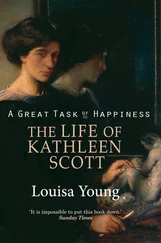It was hot on the veranda, but it was a dry sort of heat, no mugginess to it. In the horizon, the sky was a soft blue. Despite her hopelessness, Ezinne noticed this. Or perhaps it was owing to her hopelessness that she noticed. It was a soft blue sky, but there were streaks of white in it, large streaks, a little like oversized feathers.
The dibia was a small woman with grey hair and teeth that must have, long ago, resulted in a beautiful smile. But now her teeth were cracked and yellowed, and her lips were tightened and wrinkled, remnants of old beauty. She wore thin gold bangles on her wrist. They jingled and chimed as she moved her arm, as she waved Ezinne over to take a seat on the stool.
Ezinne told the dibia of the pain. She said that it came in her lower belly each time Chibuzo inserted himself into her. It hadn’t always been there, she explained. It had come on suddenly, one of the nights that she lay with Chibuzo, some months after they were wed. Perhaps it was a thing that happened because she had by then already begun to grow afraid of not being able to bear Chibuzo a child. In any case, each time afterwards that he made to enter her, she stiffened, and there was the pain. Or rather, she said, it was hard to tell which one came first — the stiffening or the pain.
The dibia listened. She nodded sparingly as Ezinne explained, and then she responded that, whatever the issue, whether it was pain or just fear, she was sure she could cause it to disappear.
‘Amen!’ Nneka exclaimed from where she sat at the rear of the veranda.
Chibuzo, seated there by Nneka’s side, did not say a word.
Ezinne exhaled.
On the railing, near where the jerrycan and glass and straw sat, were also two glass bottles of oils, with brown roots or some plant-like substances in them. The dibia took the smaller of the two bottles, twisted off the cap, poured a bit of the oil into her hand. With her fingers, she dabbed the oil on Ezinne — on her forehead, on the sides of her face, on the back of her neck, on her chest (the triangle of skin which the deep V-neck of her blouse made visible). The air smelled of manure, of cow dung, and Ezinne breathed it all in and allowed herself to be dabbed. She leaned her back into the railing of the veranda — the part of it where there were no items in the way.
The dibia moved on from the oil. She raised the glass and straw, rinsed them using the water in the jerrycan. She rinsed holding them over the veranda’s railing, so that the water poured outside the veranda, onto the grass and gravel there. Afterwards, she shook out the glass and straw as if to dry them. She blew through the straw, as if to get rid of any latent sediment. Then she filled the glass nearly to its brim with the water from the jerrycan. She stuck the straw into the water in the glass. She was ready then to proceed with the healing.
Chibuzo sat by Nneka and watched. So far, it was just as Nneka had explained it would be. And it was just as Chibuzo had dreamt it would be.
The dibia brought the glass, the straw still in it, to the side of Ezinne’s face. She blew into the straw so that bubbles formed in the water. She brought the glass to the other side of Ezinne’s face. She blew into the straw again, so that more bubbles formed. The water turned a little cloudy. Just as in the dream.
She brought the glass to Ezinne’s chest and continued to blow into the straw. She lowered the glass slowly downwards, lingering in the area of Ezinne’s belly, and then lower. She blew and blew.
Ezinne watched the dibia. She took in the wrinkles on the woman’s face — the way the age spots blemished her skin like dark stars on the surface of a light-coloured sky. She took in the seriousness of the dibia’s face, and the deep purple of the blouse the dibia wore, deep purple like a bruise, Ezinne thought.
Every once in a while, Ezinne closed her eyes and simply listened to the cracking of the bubbles, and to the jingling of the dibia’s bangles as they bumped one against another and around the dibia’s wrist.
The dibia continued to blow. The water in the glass became cloudier — a foamy sort of cloudiness, a little like palm wine. Then suddenly the liquid was becoming yellowish, and then there was sediment visible in it — small brownish particles, which floated and multiplied inside the glass.
The dibia stopped. She raised the glass, peered at it, used the straw to prod the particles in the liquid. She shook her head in dismay. She said, ‘Not good. Not good at all.’
‘What?’ Ezinne asked, alarmed. Her mother had by now gotten up from where she sat waiting in the rear of the room. Chibuzo stood too. They approached Ezinne and the dibia. What is the matter? their faces seemed to ask.
The dibia continued to shake her head, continued to prod the particles in the glass. Finally, she stuck her hand into the liquid and pulled out one of the small brownish particles in it. She inspected the particle with her fingers, turned it this way and that, brought it closer to her eyes. Some sand had come out with the particle. She wiped off the sand, and then she said, ‘These are the impurities in you. Fish scale. Sand.’ She was still inspecting the particle as she spoke. She finished, ‘You’ve been cursed by the enchanted.’
‘Cursed by the enchanted?’ Chibuzo asked. This part was not as he had dreamt.
Nneka began to whimper.
Ezinne sat quietly, stunned.
‘Cursed by the enchanted?’ Chibuzo asked again.
The dibia nodded. ‘The spirits,’ she said. ‘They curse us sometimes for no reason at all. Or sometimes they curse us because something or someone has inadvertently angered them. Or sometimes simply because they are in a bad mood.’ She paused. ‘Don’t worry. I will clean you of their curses. I will make you well again.’ With that, she lowered her hand, flicked off the particle. She turned to the railing and poured out the water from the glass. She rinsed out the glass, rinsed out the straw. She leaned over Ezinne once more, having poured new water from the jerrycan into the glass. She began again to blow.
That second round, the water grew even cloudier than the first, and the particles were larger, and had multiplied. The dibia inspected them again and announced that in addition to the sand and fish scale, there were now small bits of tree bark and red plastic in the water.
Nneka and Chibuzo stood more alarmed than before. Ezinne sat startled; tears rolled down her cheeks. No-one spoke. The dibia began the third round.
In the rounds that followed, the water grew decreasingly cloudy. By the sixth round, even with all her blowing, the water remained clean and clear.
The dibia finished by dabbing some more healing oil on Ezinne’s forehead, and face, and neck. She collected her payment. For three hundred additional naira, she gave Ezinne an unopened bottle of oil, which, she said, if used daily, would ward off any further curses of the enchanted.
Ezinne stood up. Chibuzo wrapped his arm around her. She leaned, a bit hesitantly, into him. They walked that way to the car. Nneka trailed behind, a weak but hopeful smile on her face.
It was noon by the time they got back home. The sun was high in the sky and painted the tips of the trees and the rooftops a bright yellow. Chibuzo again wrapped his arm around Ezinne’s waist and escorted her into the house.
They were eating lunch — garri and soup, which the housegirls had prepared — when Nneka announced that they should host the dinner. Tonight, she said, because why waste any time? Her eyes were bright with excitement, the eyes of a woman with a plan.
At first Chibuzo was quite in disagreement, because he could see how upset the healing had made Ezinne. But then he reasoned that the dinner — the company and socialization that came with it — would help to take Ezinne’s mind off all that had transpired on the dibia’s veranda. And, by the end of the night, if the dinner was a success, Ezinne would be feeling less upset and perhaps even eager to get to work as far as the conception of the child was concerned. What with all the safety measures having been taken — the healing and then the precautionary dinner — he could see no reason why she wouldn’t be eager. He said all this as they sat at the table. Nneka nodded fervently. Ezinne looked down despairingly into her bowl of soup.
Читать дальше












